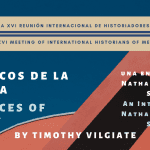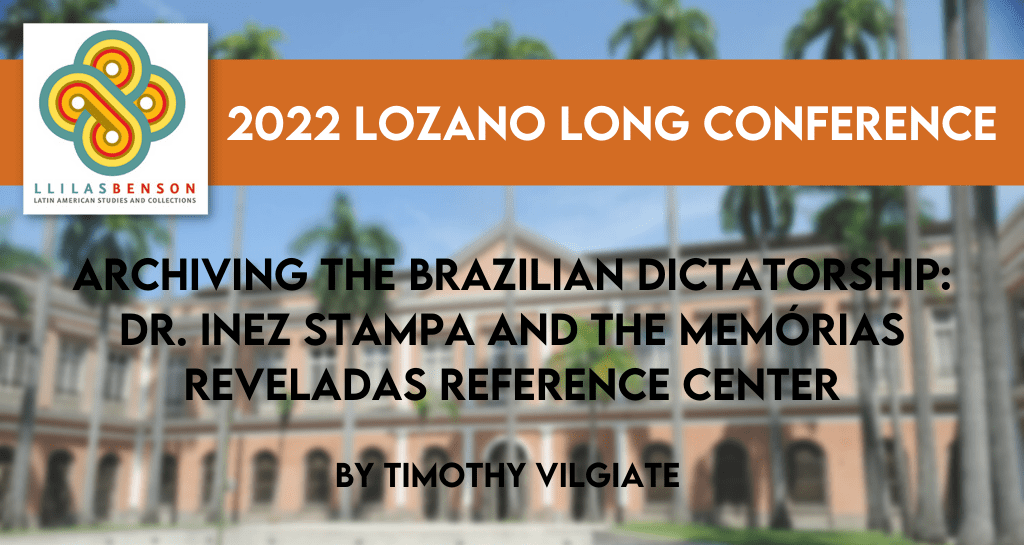
In honor of the centennial of the Nettie Lee Benson Latin American Collection, the 2022 Lozano Long Conference focuses on archives with Latin American perspectives in order to better visualize the ethical and political implications of archival practices globally. The conference was held in February 2022 and the videos of all the presentation will be available soon. Thinking archivally in a time of COVID-19 has also given us an unexpected opportunity to re-imagine the international academic conference. This Not Even Past publication joins those by other graduate students at the University of Texas at Austin. The series as a whole is designed to engage with the work of individual speakers as well as to present valuable resources that will supplement the conference’s recorded presentations. This new conference model, which will make online resources freely and permanently available, seeks to reach audiences beyond conference attendees in the hopes of decolonizing and democratizing access to the production of knowledge. The conference recordings and connected articles can be found here.
En el marco del homenaje al centenario de la Nettie Lee Benson Latin American Collection, la Conferencia Lozano Long 2022 propició un espacio de reflexión sobre archivos latinoamericanos desde un pensamiento latinoamericano con el propósito de entender y conocer las contribuciones de la región a las prácticas archivísticas globales, así como las responsabilidades éticas y políticas que esto implica. Pensar en términos de archivística en tiempos de COVID-19 también nos brindó la imprevista oportunidad de re-imaginar la forma en la que se llevan a cabo conferencias académicas internacionales. Como parte de esta propuesta, esta publicación de Not Even Past se junta a las otras de la serie escritas por estudiantes de posgrado en la Universidad de Texas en Austin. En ellas los estudiantes resaltan el trabajo de las y los panelistas invitados a la conferencia con el objetivo de socializar el material y así descolonizar y democratizar el acceso a la producción de conocimiento. La conferencia tuvo lugar en febrero de 2022 pero todas las presentaciones, así como las grabaciones de los paneles están archivados en YouTube de forma permanente y pronto estarán disponibles las traducciones al inglés y español respectivamente. Las grabaciones de la conferencia y los artículos relacionados se pueden encontrar aquí.
The 2022 Lozano Long Conference at UT Austin brought together historians from the United States and Latin America for conversations around the “archival turn” in history, a reflexive movement to examine how traces of the past in the form of documents and other artifacts arrive in the archives. In line with this theme, Dr. Inez Stampa of the Brazilian National Archives presented about her work with the Memórias Reveladas Reference Center, a critical node for an international network of non-governmental organizations and research institutions, including both historians and members of other disciplines, interested in interrogating the legacy of Brazil’s 1964-1985 military dictatorship. A social worker by training, Dr. Stampa understands her work with archives in relation to a broader process of transitional justice–a term referring to the judicial and political measures put in place “to redress legacies of massive human rights abuse” (International Center for Transitional Justice, 2021). This process is especially important in Brazil, as many continue to downplay or deny the atrocities committed under military rule.
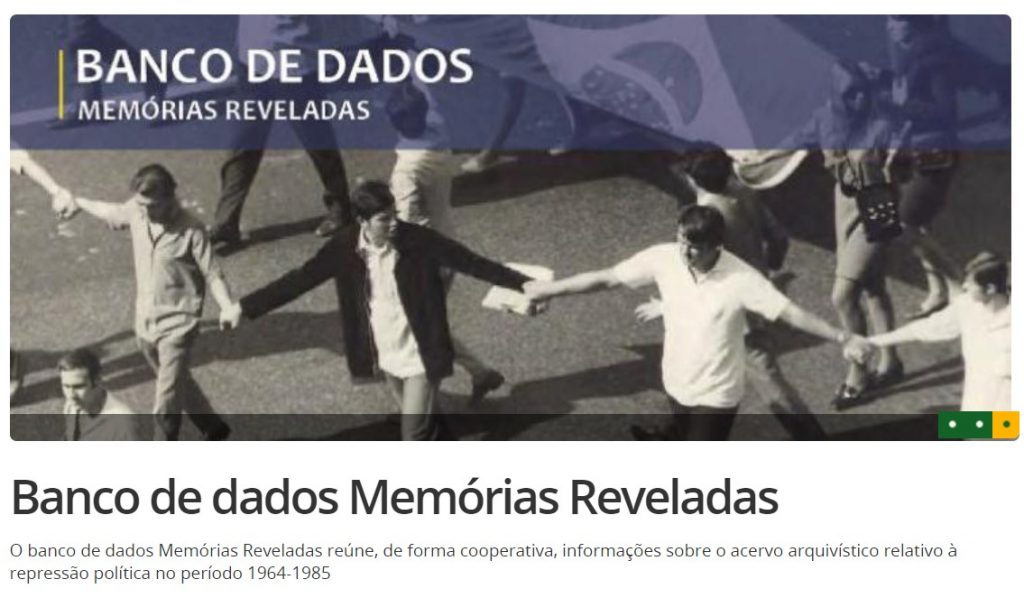
In 1985, military rule in Brazil gave way to a civilian government, ending a period of censorship and political repression that restricted access to the archives and threatened dissenting voices in the Brazilian academy with imprisonment or exile. The documents from Brazilian national security organizations from the dictatorship remained protected under the custody of the Brazilian Intelligence Agency (ABIN). Dr. Stampa, who completed her undergraduate degree in sociology in 1988 at the Universidade do Estado do Rio de Janeiro, described an absence of information about the history of the dictatorship in her early education, along with an atmosphere of fear surrounding discussions of the recent past in her university classes. This was despite growing agitation by victims of dictatorship-era human rights violations for justice. After the closure of the Brazilian Social Assistance League (LBA) in 1995, she pursued a position with the National Archives, cognizant of the importance of reckoning with the past for society writ large and of the silences surrounding the recent past.
The 2002 electoral success of the Partido Trabalhista (the Workers Party) brought many victims of imprisonment and torture under the dictatorship to power, strengthening cries for accountability and the release of documents from the period of military rule. After nine months of legal and logistical meetings concerning the release of the previously classified material, President Luiz Inácio Lula da Silva ordered the transfer of documents from three now extinct national security organizations to the National Archives in 2005. Four years later, a presidential decree established the Centro de Referência das Lutas Políticas no Brasil (1964-1985) – Memórias Reveladas (The Reference Center for Political Struggles in Brazil (1964-1985) – Revealed Memories). This center was later directed by Dr. Stampa and her husband Dr. Vicente Rodrigues, with the goal of processing the documentation and facilitating public engagement with the material, housed at the National Archives.
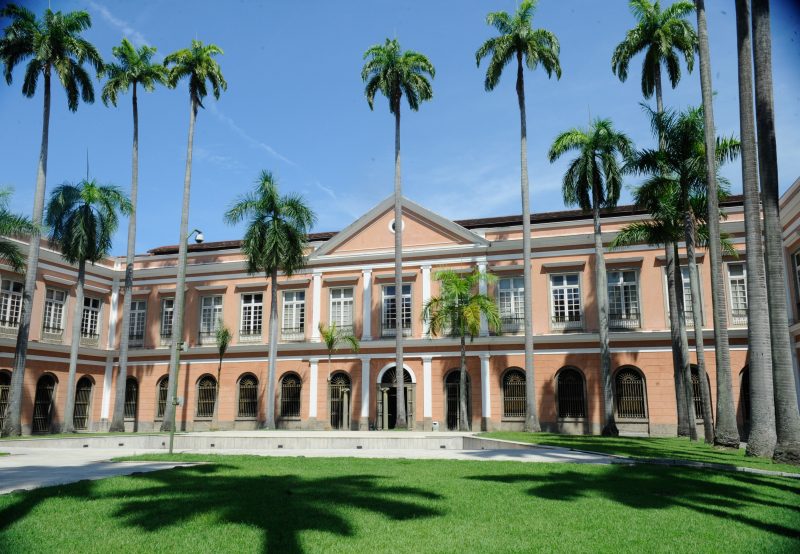
With more than 18,000,000 documents from the National Information Service (SNI), the Brazilian National Security Council (CSN), and General Investigation Commission (CGI) and other agencies of the dictatorship, the collection offers a look at the nerve center of the 21-year authoritarian regime. However, Dr. Stampa and Dr. Rodrigues both noted in our conversation, documents from the branches of the military themselves as well as provincial organs of the regime still remain unaccounted for. Moreover, even the documents themselves include distortions of their own. For this reason, Dr. Stampa and her colleagues interviewed victims of the regime and their relatives to help fill in the gaps in the archival record.
Both academic and popular discourse tends to construct the Brazilian military dictatorship as less violent and more restrained than the regimes in Argentina and Chile. Dr. Stampa traces this conception to the regime’s sophisticated organization and pervasive intelligence apparatus, in addition to the low number of casualties relative to Brazil’s neighbors in the Southern cone. On this latter point, she stressed that, “The people doing the calculations don’t include the more than 8000 indigenous victims of the regime, since their deaths occurred for ‘non-political’ reasons–they weren’t communists, they just happened to stand in the way of development.” Faced with a general lack of awareness of the human rights violations occurring under the dictatorship, the goals of the project go beyond simply storing, indexing, and digitizing material. The reference center provided documents to the National Truth Commission established in 2011, distributes a biennial prize for researchers making innovative uses of the archival material, and coordinates with a diverse network of 171 national and international partners to maximize the projects usefulness for transitional justice and engagement with Brazilian history.
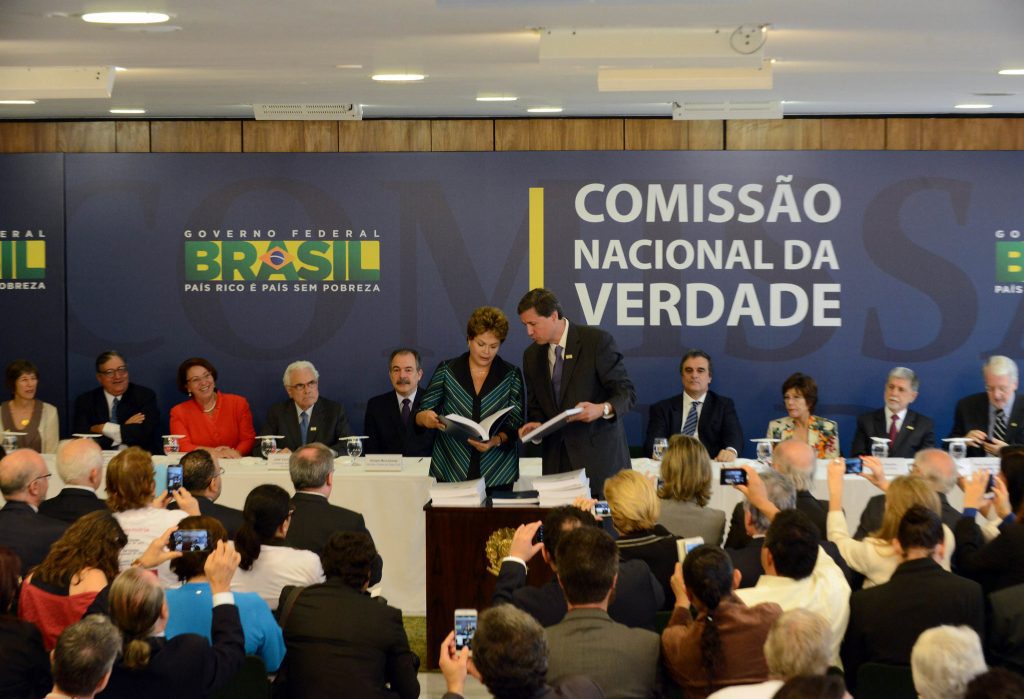
Dr. Stampa’s work with the National Archives intersects with her work as a professor at the Pontifícia Universidade Católica do Rio de Janeiro, a position that connects her with both other academics and students interested in engaging with the archival collection at the Memorias Reveladas reference center. In her own research, she examines the condition of workers under the dictatorship, a complex issue with ongoing resonance today as neoliberal reforms oriented at privatization have undermined protections dating back to the Vargas era, from 1930-1945. Despite efforts under Worker’s Party governments in past decades to establish welfare programs like Bolsa Familia, the position of workers in the service industry and the informal sector have grown especially precarious. The instability of their employment renders things that more well-off Brazilians might take for granted, like healthcare and housing, inaccessible. Dr. Stampa understands the contemporary circumstances as continuing the policies created during the dictatorship, whose understanding of development saw maximizing profits for corporations and the wealthy as the key to national prosperity.
My own research focuses on the transnational history of psychedelic plant science and its intersections with nationalist state-building projects in the late 20th Century, specifically in Brazil and Mexico. The Brazilian military dictatorship occurred in the context of a hemisphere-wide campaign of authoritarian repression and capitalist development projects spearheaded by the United States to prevent the spread of communism. Reactionary elements came to use the word “communism” as a catch-all term for seemingly deviant or non-conforming behavior more generally, particularly drug use. The CIA funded research into hallucinogens like lysergic acid amide, psilocybin, and atropine, all derived from plants found in Latin America, through the MKULTRA program, and numerous governments in the Western hemisphere used the substance as an aid to interrogation. While not knowing of any similar programs in Brazil, Dr. Stampa noted that the Brazilian government also invoked substance use by alleged subversives to discredit them, sometimes planting drugs in their homes or personal belongings to provide grounds for an arrest. The hypocrisy of their rhetoric on drugs manifests in the archival documentation collected by the reference center–one torturer with the federal police later admitted to conducting his interrogations, which sometimes involved violent sexual abuse, under the influence of cocaine.
The work of Memorias Reveladas today unfolds against the backdrop of a challenging political context. Since the 2015 impeachment of Dilma Rousseff (described by many of her supporters as a coup), subsequent administrations have reduced funding for the project. Moreover, current President Jair Bolsonaro, vehemently opposed to the creation of the National Truth Commission in 2011 and today vocally defends and praises the 1964-1985 dictatorship. With the national press focused on his disastrous handling of coronavirus, he overturned the 2005 decree authorizing the transfer of documents from ABIN to the National Archive on May 11, 2020. Buried in a superficially administrative revocation of more than 300 other decrees, Dr. Stampa and Dr. Rodrigues explained that the order had little impact on their work since ABIN already concluded the transfer of documents. However, they noted that, “If the agency uncovered any more documents that belong in the collection, we’d need another decree to receive them,” drastically limiting the project’s ability to receive and incorporate new documentary material. To learn more about the project, consider watching the recording of Dr. Stampa presentation at the LLILAS Benson Conference, which took place February 24-25, 2022.
Timothy Vilgiate grew up in Colorado and earned his BA and MA in History at the University of Colorado, Colorado Springs. Currently in the 2nd Year of the History PhD program at UT Austin, he studies the intersections between hallucinogenic plant research, national development projects, and discourses about indigeneity in Brazil and Mexico. In his spare time, he enjoys astrology, hiking, and recording music.
The views and opinions expressed in this article or video are those of the individual author(s) or presenter(s) and do not necessarily reflect the policy or views of the editors at Not Even Past, the UT Department of History, the University of Texas at Austin, or the UT System Board of Regents. Not Even Past is an online public history magazine rather than a peer-reviewed academic journal. While we make efforts to ensure that factual information in articles was obtained from reliable sources, Not Even Past is not responsible for any errors or omissions.
